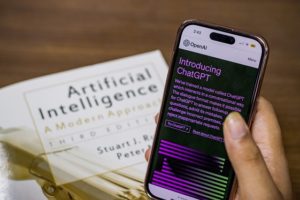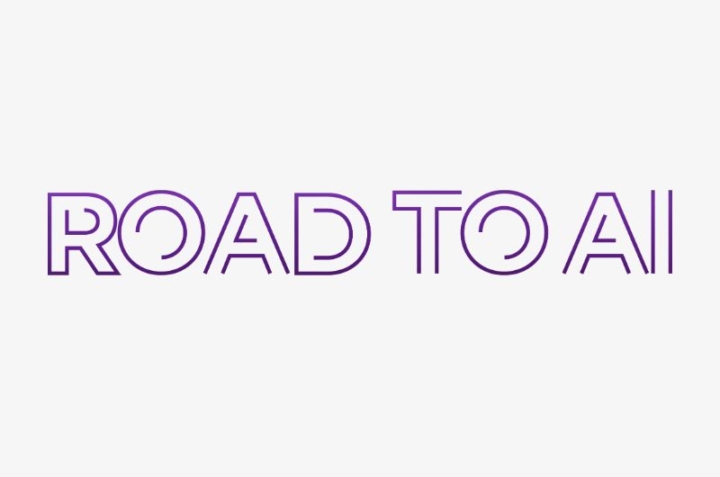This article was originally published in French. Discover the original version by using the language selector at the top right of this website.
GenAI continues to reshape sectors; consulting included. For consultants, Artificial Intelligence (AI) is an undeniable asset. Looking ahead, its real strength will lie in its capacity to pinpoint the need for human intelligence.
Recent studies have evaluated the potential impacts of GenAI on consulting. Its capability to significantly simplify routine tasks, such as reviewing references and resumes, creating white papers, and more, is highlighted. Additionally, GenAI can expedite analysis, reporting, and benchmarking, automate specific consulting processes, and consequently decrease the required number of analysts.
While some developments show promise, others trigger apprehension. One thing is for certain: as with other industries, the progress of GenAI forces us to rethink our value proposition and the role of people. A joint study by Harvard Business School and Boston Consulting Group (BCG) found that “AI-augmented consultants” completed mundane tasks 21% faster, outperforming the ‘control group’ (consultants without AI) by 40%.
Clearly, this scenario is less relevant for more complicated processes with productivity that varies for each person. That said, it offers ample evidence of a meaningful contribution. In our day-to-day, we “waste” considerable time finding information (with reliable sources wherever possible) not to mention drafting documentation and composing impactful emails. Is this really where we want our consultants investing their time and energy to create measurable value?
Personalization and Expertise
What do we really want from consultants? At times, we want them to either quickly grasp a situation, market or technology, or to benchmark our performance against the competition. However, more often than not, companies seek their services to stand out by leveraging their people and assets and to successfully lead transformation. In this context, expertise, personalization, and change management take precedence over the disclosure of information and outside-the-box thinking.
 GenAI will arguably facilitate the above three priorities but will require more time to become integrated as a key component. Regarding personalization, studies lend weight to the instinctive argument that “AI-augmented consultants” perform slightly better, albeit with less differentiated solutions. Remember: clients seldom want the same winning formula as competitors!
GenAI will arguably facilitate the above three priorities but will require more time to become integrated as a key component. Regarding personalization, studies lend weight to the instinctive argument that “AI-augmented consultants” perform slightly better, albeit with less differentiated solutions. Remember: clients seldom want the same winning formula as competitors!
As for problem-solving with key expertise, the effectiveness of GenAI has yet to be tested. In this regard, GenAI models will struggle to implement effective applications given how the public data they use for training is a far cry from the real-life experience of seasoned experts. Expertise can already help repair toasters by sharing images and the source of the problem (i.e., a “narrow AI” system). However, today’s technology will not determine the best solution (Open AI, open source, etc.) for complex GenAI use cases by factoring in the model’s performance and whether it is frugal, explainable, and compliant with in-house policies covering data and algorithms.
Saving Precious Time
Finally, the topics of change management, human aspects, co-construction, consideration of unpredictable factors, and the situational intelligence that must be demonstrated, are all areas where human intelligence will maintain its advantage for a long time. In the end, what if this movement allowed us to separate the good from the bad?

If we apply GenAI to transformation consulting, the bad consultant bases their ideas and use cases on the Internet and ChatGPT, deploying the tool to select the appropriate technological solution and prompting it to devise a plan. Conversely, the good consultant first considers the business issues at stake before developing a desirable roadmap in an effort to understand the nuances behind company processes, culture, and Information Systems (IS) to deliver realistic goals.
Our good consultant will then concentrate on achieving the outcomes of this use case for business processes, IS, and users. GenAI saves consultants precious time, sharpening their focus on these mission-critical aspects.
The same conclusion applies to most other sectors. Despite the apparent paradoxes, when it comes to value propositions, GenAI puts people, expertise, and uniqueness first. Large-scale analysis, content creation, and slide generation are merely additional features. Now, is that really so bad?
Let's continue our exploration:
Get your questions answered by our Data & AI experts. Find out how we can help you realize the full potential of AI for your organization.
Read our “Road to AI” series to explore the many facets of artificial intelligence and unlock its power to grow your business.




